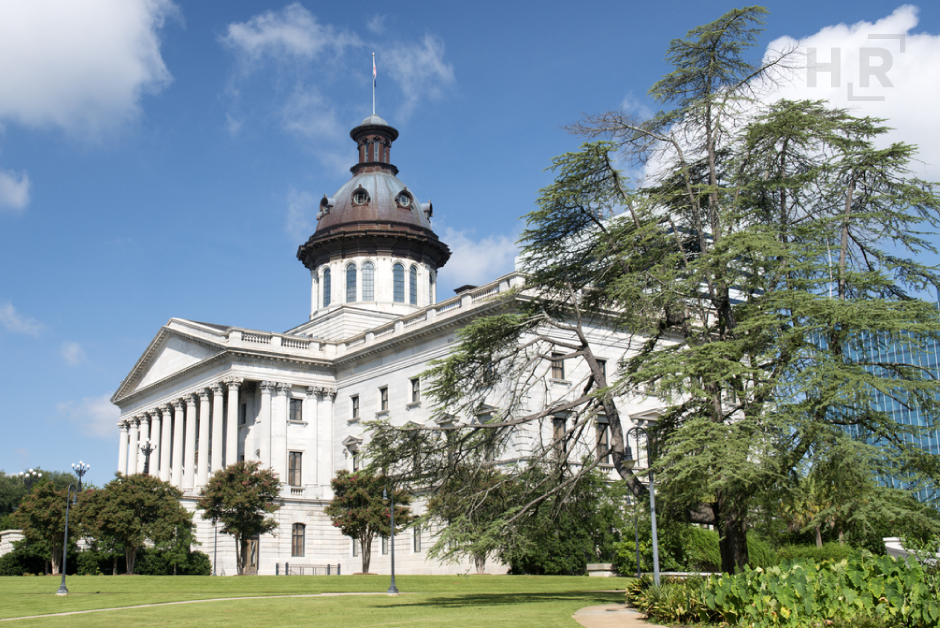South Carolina’s “Ban The Box” Bills: What Employers Need To Know
Proposed legislation in South Carolina aims to reduce barriers for individuals with criminal records by delaying when and how criminal history is considered during the hiring process.

In the past decade, almost 50 jurisdictions have enacted “Ban the Box” laws, underscoring a national shift toward fairer hiring practices for individuals with criminal records. South Carolina is now poised to join this movement with three proposed bills—H. 3775, H. 3272, and H. 3224—that could reshape how employers evaluate criminal history. While these bills primarily target public employment, their broader implications make them critical for private employers to understand.
Rethinking Criminal History in Hiring
The proposed legislation aims to reduce barriers for individuals with criminal records by delaying when and how criminal history is considered during the hiring process. At its core, the intent is to balance public safety with the rehabilitation and reintegration of offenders into the workforce.
A key provision in all three bills is the prohibition of early inquiries into an applicant’s criminal history. This means private employers would need to revise application forms and delay background checks until after an interview or conditional job offer. This shift requires employers to reexamine their hiring processes to align with the delayed timeline and ensure compliance if the bills are passed.
Compliance and Implications for Private Employers
The three bills share similar goals, focusing on limiting the use of criminal convictions in hiring decisions and ensuring that specific types of records—such as arrests without convictions, expunged records, and minor misdemeanors—are excluded from consideration. For public employers, the bills mandate individualized assessments, requiring a careful evaluation of how a conviction relates to the role in question. While private employers are not obligated to conduct such assessments, adopting this best practice can mitigate legal risks.
What Is an Individualized Assessment?
An individualized assessment evaluates an applicant’s criminal record in relation to the job, considering:
The nature and severity of the offense.
The time elapsed since the offense.
The relevance of the offense to the job’s duties.
This approach aligns with the EEOC’s guidance under Title VII of the Civil Rights Act, which discourages blanket exclusions based on criminal history. Employers that adopt individualized assessments can reduce potential liability for disparate impact claims while fostering inclusive hiring practices.
Defining Public Employment
As outlined in the bills, public employment includes positions within state agencies and their political subdivisions. For private employers, understanding this distinction underscores the importance of voluntarily aligning with best practices, even if not legally mandated.
Differentiating the Three Bills
While the proposed bills share common themes, there are notable distinctions in their focus and implementation timelines:
H. 3775 is the most comprehensive, providing detailed compliance obligations and a penalty timeline beginning in 2027.
H. 3272 emphasizes urgency, accelerating penalties to 2026 while retaining the same foundational principles.
H. 3224 takes a legalistic approach, with penalties for larger employers starting in 2028, and a referral to the Judiciary Committee, reflecting its focus on enforcement nuances.
These differences highlight the varying legislative priorities behind each bill. Whether emphasizing rehabilitation, compliance urgency, or legal clarity, each bill seeks to reshape hiring practices in a way that promotes fairness.
Preparing for Change
For private employers, these legislative developments offer an opportunity to revisit hiring policies and implement practices that promote equity while reducing legal risks. Key actions include:
Revising Hiring Policies: Remove questions about criminal history from initial job applications to comply with delayed inquiry requirements.
Training Hiring Personnel: Educate hiring teams on the nuances of the proposed legislation and the importance of individualized assessments.
Monitoring Legislative Developments: Stay informed about the progress of these bills through their respective committees and adjust policies accordingly.
Looking Ahead: A Business and Compliance Opportunity
South Carolina’s proposed “Ban the Box” legislation reflects a growing trend toward inclusive hiring practices. For private employers, embracing these principles now offers a competitive advantage in today’s evolving talent market. Beyond compliance, adopting individualized assessments and delaying criminal history inquiries can enhance an organization’s reputation as an equitable and forward-thinking employer.
By preparing for these changes and aligning hiring practices with the bills’ intent, private employers can not only ensure compliance but also lead the way in creating fairer employment opportunities for all. At a time when employers face a competitive talent market, embracing these practices isn’t just about meeting legal requirements—it’s about unlocking new opportunities to attract and retain a diverse workforce.
Release Date: February 12, 2025

Alonzo Martinez
Alonzo Martinez is Associate General Counsel at HireRight, where he supports the company’s compliance, legal research, and thought leadership initiatives in the background screening industry. As a senior contributor at Forbes, Alonzo writes on employment legislation, criminal history reform, pay equity, AI discrimination laws, and the impact of legalized cannabis on employers. Recognized as an industry influencer, he shares insights through his weekly video updates, media appearances, podcasts, and HireRight's compliance webinar series. Alonzo's commitment to advancing industry knowledge ensures HireRight remains at the forefront of creating actionable compliance content.